
Live Through This
Words By Karen Brissette, Art By Jonny Lindner
Human beings: squishy, fluid-filled meat bags with terrible night vision and very little in the way of natural defense mechanisms—other than a frequently overrated thinking organ giving them all the unearned confidence they need to climb things they shouldn’t be climbing, ingest things they shouldn’t be ingesting, or strap themselves into fast-moving machines some stranger constructed (or some other machines built by some other strangers), thinking that because they’ve watched a bunch of seasons of Survivor or mastered using their Cheetos-stained opposable thumbs to up, up, down, down, left, right, left, right, B, A, start, they’d be some real-world badass if the situation arose for them to demonstrate this untested latent badassery.
And yet, on average, 151,600 people die each day.
Here’s a sobering syllogism: all people die/you are a person/you might die today. You only get one death. Make it a good one.
You’ll never cheat death, but to help you make better choices, here is a list of ten books, both factual and fictional, in which surviving becomes increasingly less likely—from “Yeah, you got this, buy that whole gallon of milk, son!” to “I hope you’ve been diligent about clearing your browser history and have made arrangements for your cat.”
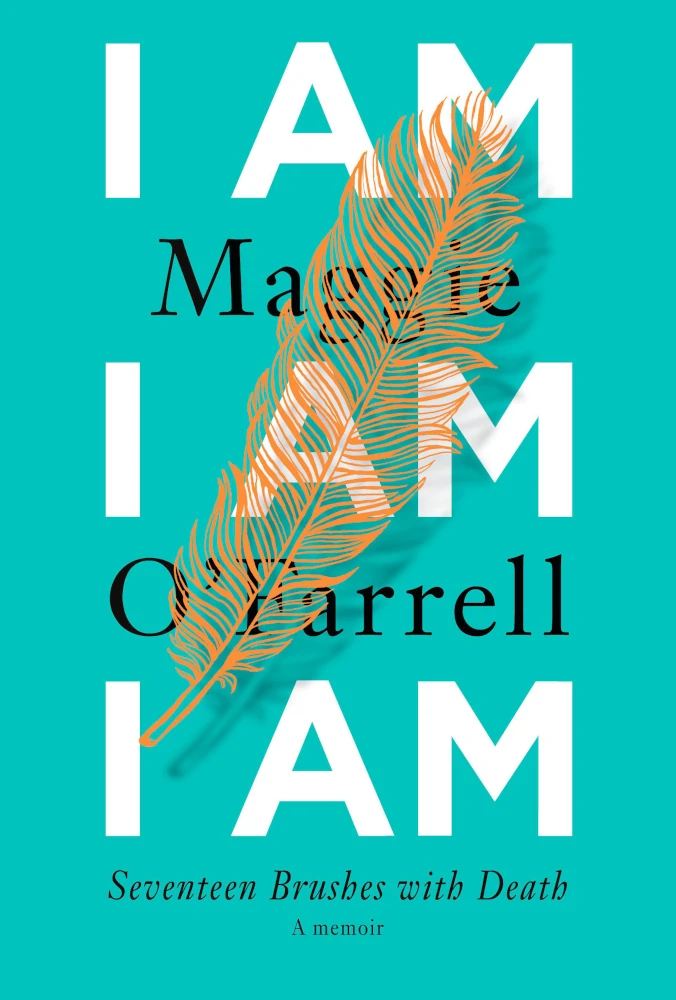
I Am, I Am, I Am: Seventeen Brushes with Death
by Maggie O’Farrell
To flip the script on a delightful old misogyny-chestnut: women are so badass they can bleed for a week without dying. Maggie O’Farrell raises that bar, cheating death seventeen times. So far. After ten or so brushes with death, I’d be asking myself, “Am I being careless?” Maggie O’Farrell just takes it in stride. Some of her experiences brush closer than others to Death’s musty robes, but how does the saying go—let he among us who has never had a machete held to his neck cast the first quibble.
Survivability: Excellent. Maggie O’Farrell is either immortal or is, in fact, two cats in a person suit.

Perfect Imperfection: Dog Portraits of Resilience and Love
by Alex Cearns
Cue the Sarah McLachlan music. This photography book features dogs who—through disease, abuse, or misadventure—have had to have legs amputated or eyes removed. Admirably undeterred by the injustice of their missing bits, they healed and rallied with that irrepressible canine optimism, overcoming adversity and serving as inspirations to their human rescuers and all of us human crybabies.
Survivability: You ever seen a three-legged dog? They are happier and more energetic than any human I know, mostly because they don’t know math—Oh, are there supposed to be four of these? Oh well, hey look—squirrel!
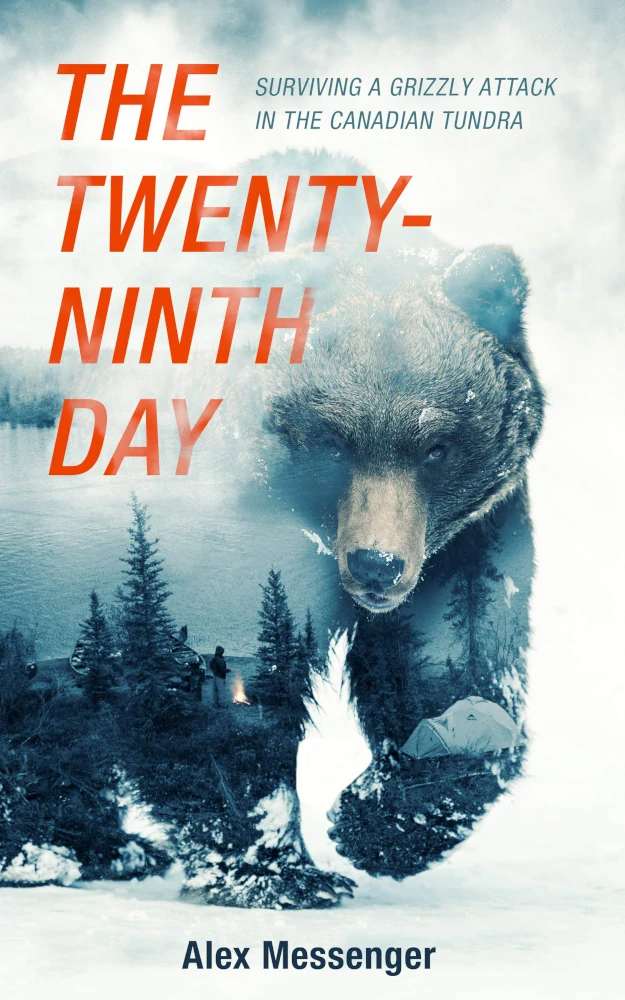
The Twenty-Ninth Day
by Alex Messenger
A memoir about how much more challenging a wilderness adventure becomes when you are grievously injured. Six seventeen-year-old boys headed out into Canada’s backcountry for forty-two days of canoeing and hiking in the great outdoors. One bear-maul later, and it wasn’t just bad weather and rushing rapids they had to contend with but pain and infection, terror and trauma—and there wasn’t even a merit badge at the end of it all.
Survivability: I saw this guy at Book Expo, and fifteen years after his ordeal, he looked fine. He was not even a little misshapen.
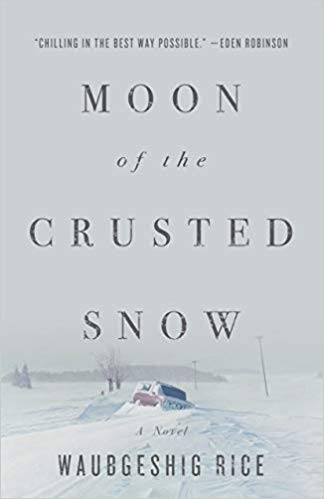
Moon of the Crusted Snow
by Waubgeshig Rice
Moving further up into Northern Canada now, for a post-apocalyptic survival story with an echo of history repeating itself. Set in a small Anishinaabe community, where remoteness from “civilization” has already made self-sufficiency and interdependence a priority for survival, and where preservation of the old ways puts them in a better position than many when the world’s power grid suddenly goes down as the brutal winter approaches. That is until, from the ruined cities to the south, the white men come.
Survivability: Winter in the wilderness without modern conveniences can be done—has been done. Surviving desperate people who want what you have—well, historically, it hasn’t always been as congenial an arrangement as the ant and the grasshopper.
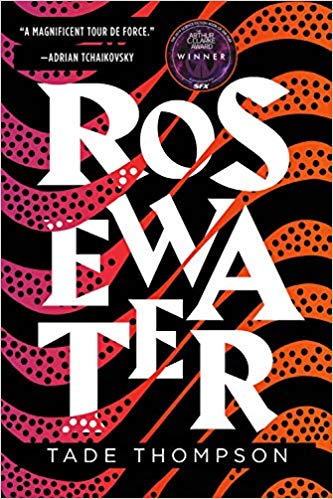
Rosewater
by Tade Thompson
This sci-fi/noir mashup takes place in 2066 in Rosewater, a Nigerian town surrounding a mysterious alien dome—which itself encases a mysterious alien city like some urban-planning turducken. The aliens’ arrival years ago also filled the air with microscopic fungal spores, triggering psychic abilities in some individuals—all of whom are now dying—and may just be the beginning of the end of the human race.
Survivability: This is the first book in a trilogy, so that’s just over a thousand pages of breathing room. But in general, it’s probably wise to be wary of alien domes that come bearing spores—sure, they can heal the sick, transform the living, and raise the dead, but maybe look that gift horse in the mouth before you start celebrating.
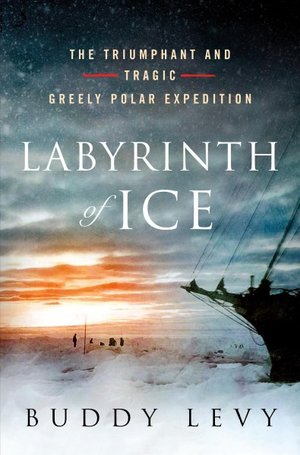
Labyrinth of Ice: The Triumphant and Tragic Greely Polar Expedition
by Buddy Levy
The Greely Arctic expedition of 1881: twenty-five strapping men embarking on a journey for science and glory. Although they succeeded in collecting many biological and botanical samples and attaining Farthest North, their triumph was dampened by wolves, subzero temperatures, frostbite-related amputations, and only two Christmas’ worth of plum pudding. Stranded, starving, cold, and sick, they suffered through years of horrible conditions awaiting rescue, resulting in despair, death, and maybe some light cannibalism.
Survivability: If you are a dog, even a resilient one-eyed one, don’t get on the boat. If you are a human, your chances are better, but still suboptimal. Although if you were one of the few survivors of the Greely expedition, you have likely since died. Unless you are Maggie O’Farrell. Someone fact-check this, plz.
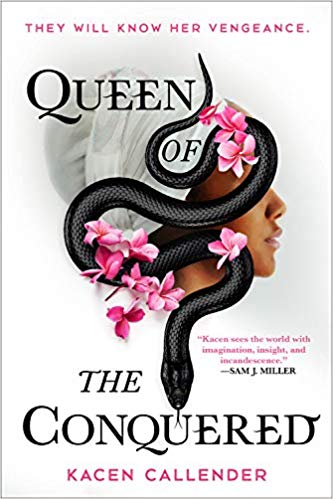
Queen of the Conquered
by Kacen Callender
Set in a fantasy-tinged version of our world, the historical atrocities of colonialism in the Caribbean are here made even more horrific, and Death is so woke he doesn’t even distinguish between oppressor or oppressed—slave uprisings, politically motivated assassinations disguised as slave uprisings, the execution of slaves for sport or for protection from their forbidden magical powers, the casualties resulting from contenders vying for the throne, grudge-based murder plots. Death is kept busy, indiscriminately grabbing with both hands.
Survivability: Slavery always = dehumanization, and dehumanization = a decreased survival rate. Combine racism with politics and the livin’ ain’t easy here.

Battle Royale
by Koushun Takami
Japan’s proto-Hunger Games, where each year, random classes of teenagers are rounded up, collared, dumped on an island full of weapons, and encouraged to be the last kid standing. You know, for honor and country.
Survivability: You have a 1-in-42 chance. But you’ve probably killed all your friends, which means more nightmares and fewer birthday presents, so it’s a hollow victory at best.

Voices from Chernobyl: The Oral History of a Nuclear Disaster
by Svetlana Alexievich
Alexievich’s award-winning collection of first-person accounts of individuals directly affected by the 1986 meltdown at Chernobyl, which (as anyone with an HBO subscription knows) was a tragedy resulting from the hubristic qualities of the human spirit causing unprecedented damage to human bodies. In situations like these, where smug human progress courts its own destruction, e.e. cummings had it right:
pity this busy monster, manunkind,
not. Progress is a comfortable disease:
your victim (death and life safely beyond)
plays with the bigness of his littleness
— electrons deify one razorblade
into a mountainrange; lenses extend
unwish through curving wherewhen till unwish
returns on its unself.
A world of made
is not a world of born — pity poor flesh
and trees, poor stars and stones, but never this
fine specimen of hypermagical
ultraomnipotence. We doctors know
a hopeless case if — listen: there’s a hell of a good universe next door; let’s go
Survivability: If you live through it, you’ll wish you hadn’t.
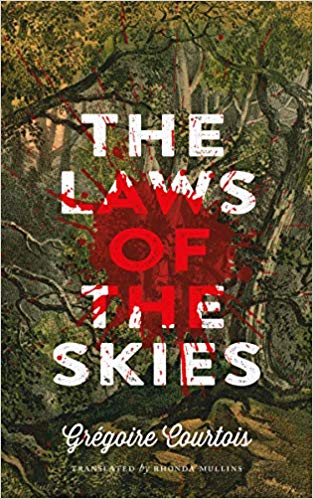
The Laws of the Skies
by Grégoire Courtois
You know all those book-clubby books celebrating the triumph of the human spirit, illuminating how bonds forged in extreme circumstances can play a crucial role in surviving adversity? Yeah, not here. From the very first page of this tale of a doomed French camping trip we know that the twelve six-year-old children and three chaperones going into the woods are never ever gonna come out again. When one of the kids goes full psychopath, killing one of the counselors, everyone flees and everyone dies—and all the bonds of friendship and cooperation in the world won’t save ‘em. Fun fact: they won’t all be murdered; this book is like a choose-your-own-adventure story where every choice is wrong.
Survivability: None. You’re fucked. Get busy dying.